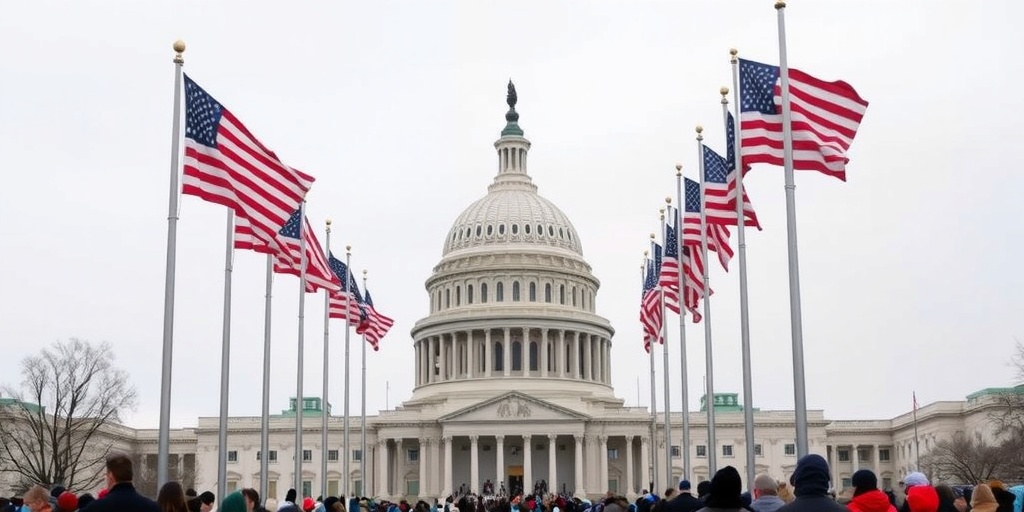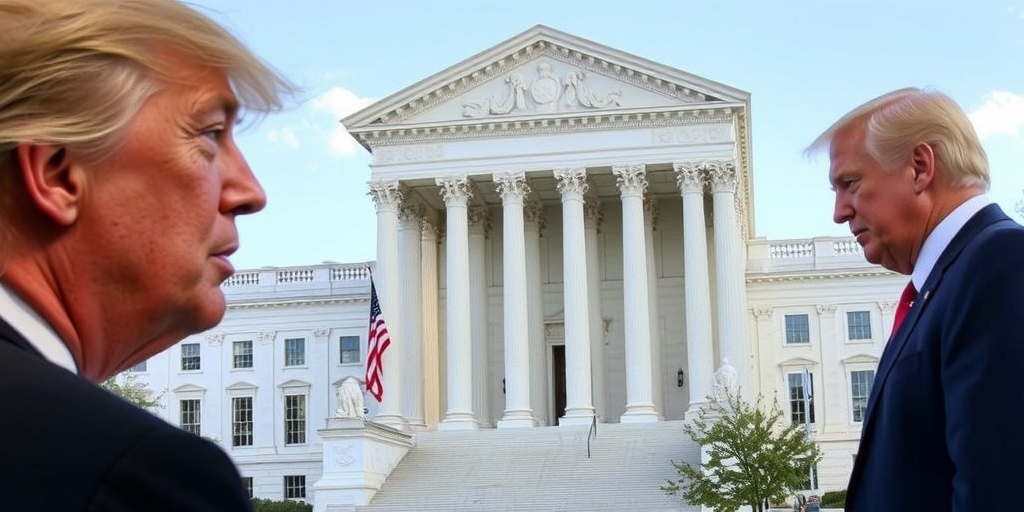Now Reading: Implications of Biden’s Action on the Equal Rights Amendment
-
01
Implications of Biden’s Action on the Equal Rights Amendment
Implications of Biden’s Action on the Equal Rights Amendment

Biden Declares Equal Rights Amendment as Part of the Constitution: Legal and Political Ramifications Unfold
On a significant day in his presidency, President Joe Biden declared that he believes the Equal Rights Amendment (ERA) has fulfilled the necessary requirements for ratification and should now be recognized as part of the United States Constitution. This declaration came just days before he was set to leave office, marking an ambitious attempt to solidify sex equality as a fundamental constitutional principle.
In an official statement, President Biden remarked, “In keeping with my oath and duty to the Constitution and country, I affirm what I believe and what three-fourths of the states have ratified: The 28th Amendment is the law of the land, guaranteeing all Americans equal rights and protections under the law regardless of their sex.” However, it remains unclear what tangible impact this declaration will have, as the president does not possess a direct role in the amendment approval process outlined in the Constitution. His statement has no legal weight on its own.
The archivist of the United States, a Biden appointee, Colleen Shogan, has indicated that she will not officially publish the amendment. She argues that it has not met the necessary constitutional requirements, and President Biden chose not to instruct her to finalize the process with the amendment’s publication.
The Equal Rights Amendment’s status has been contentious for several years. Adding an amendment requires a two-thirds majority approval in both houses of Congress, a step accomplished over 50 years ago. Additionally, it requires ratification by three-fourths of the states, which was finally achieved in 2020 when Virginia became the 38th state to endorse it. However, complications arose due to an imposed deadline for ratification. When Congress passed the ERA in 1972, it initially set a seven-year deadline, which was later extended to 10 years. By 1982, only 35 states had ratified the amendment, failing to meet the deadline.
Democratic legislators argue that the Constitution does not specify a time frame for ratification, suggesting that the congressional deadline can be disregarded. Conversely, critics, including many Republicans, contend that the ERA should be considered dead since it did not receive timely ratification, particularly since some states have since rescinded their approval. Federal courts have previously dismissed attempts to claim that the ERA was ratified.
Sen. Kirsten Gillibrand, a New York Democrat, has spearheaded initiatives to persuade President Biden that the ERA should be recognized as law and called for him to direct the archivist to publish it. The president’s declaration on Friday effectively aligned with this argument, insisting that the ERA has navigated all necessary hurdles to become part of the Constitution.
Despite Biden’s assertion, the archivist preemptively dismissed it. Colleen Shogan and her deputy, William J. Bosanko, clarified that the ERA "cannot be certified as part of the Constitution due to established legal, judicial, and procedural decisions." This leaves the question open regarding whether Biden’s allies and others will recognize the ERA as the 28th Amendment.
Proponents of the ERA are preparing for a legal battle over its recognition. They cite historical precedence, particularly an event on January 8, 1798, when President John Adams announced that the 11th Amendment had been ratified and should be recognized as part of the Constitution. Supporters are urging women affected by restrictive laws—especially those in red and purple states—to initiate lawsuits based on the Equal Rights Amendment, ultimately aiming to bring the issue before the Supreme Court.
Gillibrand highlighted the potential legal consequences of the ERA’s recognition, asserting, “Any person who was incarcerated because they brought their 10-year-old across state lines for abortion services would have a right of action now.” She emphasized the importance of establishing clear rights in court, particularly in states that infringe upon women’s rights.
Politically, the ERA is poised to become a rallying point for Democrats. Proponents intend to challenge Republicans to confront the implications of gender equality and the fundamental rights of women. Renowned constitutional scholar Laurence Tribe has noted that the current political climate necessitates a clear message. "In a political environment like this, you throw at the wall whatever you can."
However, opposition to the ERA remains steadfast. During former President Donald Trump’s administration, the Justice Department’s Office of Legal Counsel opined that Virginia’s late ratification did not count, citing the congressional deadline as valid and enforceable. The current Justice Department under President Biden reaffirmed this interpretation, indicating that the established deadline remains in effect. Courts have backed up this view, dismissing lawsuits asserting that the ERA has already been ratified.
Opponents are also gearing up for a robust challenge, particularly from anti-abortion groups aware of the implications the ERA could have for reproductive rights. Emma Waters, a research associate at the Heritage Foundation, warned that the adoption of the ERA could enshrine a supposed right to abortion in the Constitution, advocating for opposition from lawmakers concerned about protecting women and unborn children.
As the debate around the Equal Rights Amendment rages on, the political and legal intricacies continue to unfold. The discussions surrounding the ERA could significantly shape the landscape of civil rights and gender equality in America for years to come.
Stay Informed With the Latest & Most Important News
Previous Post
Next Post
-
 01New technology breakthrough has everyone talking right now
01New technology breakthrough has everyone talking right now -
 02Unbelievable life hack everyone needs to try today
02Unbelievable life hack everyone needs to try today -
 03Fascinating discovery found buried deep beneath the ocean
03Fascinating discovery found buried deep beneath the ocean -
 04Man invents genius device that solves everyday problems
04Man invents genius device that solves everyday problems -
 05Shocking discovery that changes what we know forever
05Shocking discovery that changes what we know forever -
 06Internet goes wild over celebrity’s unexpected fashion choice
06Internet goes wild over celebrity’s unexpected fashion choice -
 07Rare animal sighting stuns scientists and wildlife lovers
07Rare animal sighting stuns scientists and wildlife lovers





















